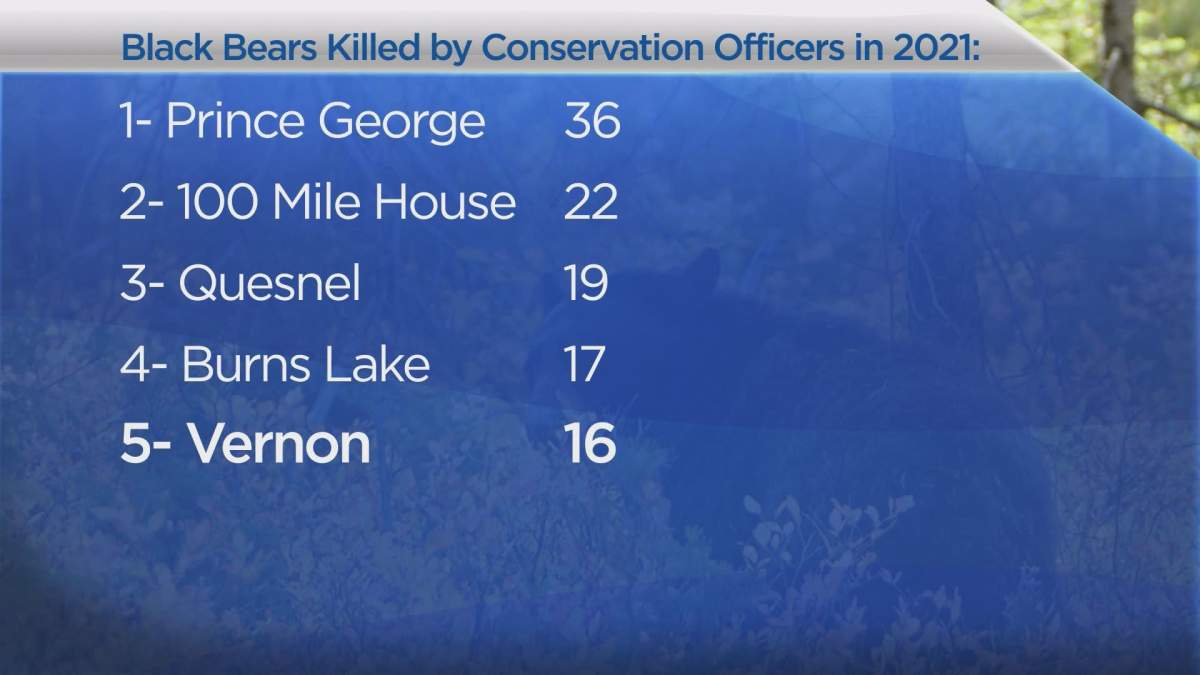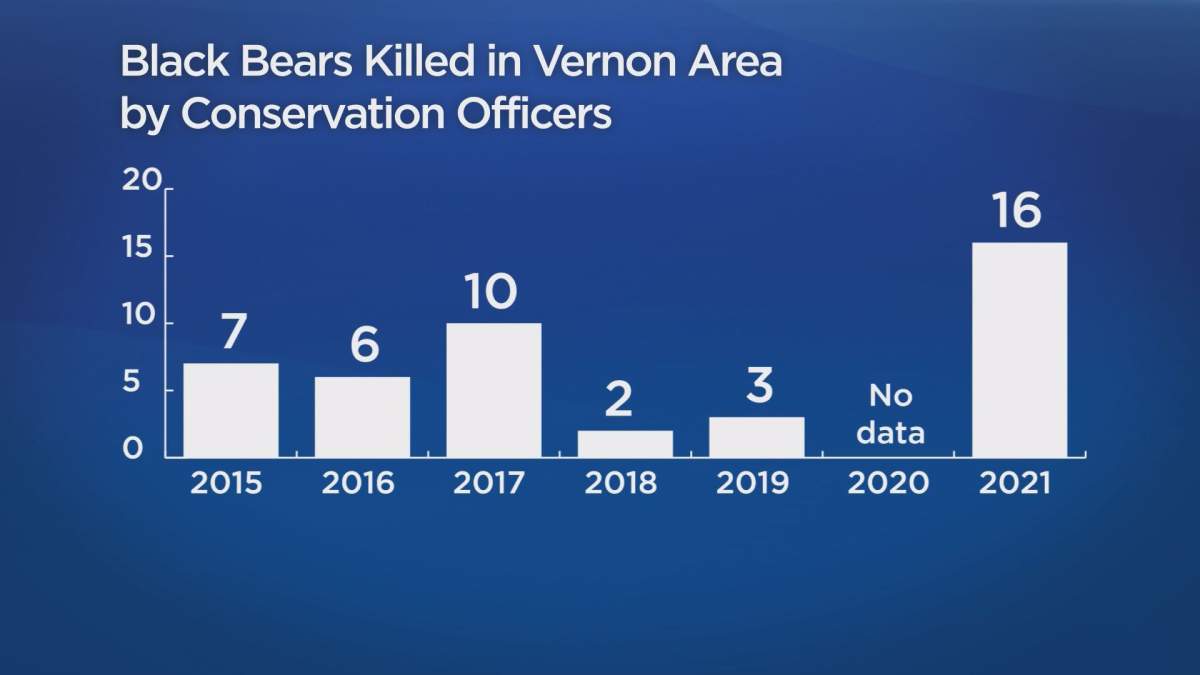Vernon, B.C. made a top-five list no community wants to be on.

A provincial advocacy group called The Fur-Bearers named the city to a list of “deadliest communities” for black bears after data showed conservation officers put down 16 bears in the area last year.
Prince George was in first place with 36 bears killed.
“Ultimately we want to see black bears and humans coexist in the province. We want to protect black bears and one way to do that is to identify those areas where there is a real problem,” said Aaron Hofman, director of advocacy and policy with The Fur-Bearers.
“We do want to challenge the status quo of using lethal force against bears and do everything we can to reduce the number of killings in our communities.”
The group is hoping the data, obtained through a freedom of information request, spurs residents to reduce human-bear conflicts and ultimately the number of bears that are killed.

Get daily National news
“We want to put this data out to essentially equip citizens…to show them there is a a problem that exists in their community and they can be a part of the solution to reduce the number of bears being killed in that community,” Hofman said.
“So that can mean, at an individual level, take steps to manage their attractants, ensure that they are not feeding wildlife, picking up fruit from fruit trees, but also advocating for stronger bylaws, ensuring that there is enforcement of bylaws against wildlife feeding and attractants.”
The data shows the number of black bears killed by conservation officers in the Vernon area last year was unusually high compared to previous years, and it seems the destructive wildfire season likely played a role.
In 2021, the massive White Rock Lake fire, near Vernon, grew to over 80,000 hectares before it was held.
The province has confirmed some bears were euthanized in the region in 2021 due to wildfires: either because they were injured or because they broke into evacuated homes where food was rotting.
Still, Vernon’s general manager of public works said he was surprised by The Fur-Bearers data.
“We were taken aback a little bit. This wasn’t information that was readily available to us,” said Chris Ovens.
However, coincidently, the municipality has already been working to update its bylaws around waste disposal and animal attractants.
Ovens said the proposed bylaw change would stipulate that waste not be put out the night before collection and “will also speak to the responsibility of residents and storing their waste collection carts and reducing the attractants related to that.”
The bylaw would allow the City of Vernon to be more proactive in addressing garbage that’s attracting bears rather than waiting for conservation officers to step in.
The proposed rule changes are expected to go before city council as early as August and could be in place this fall if they receive city council support.
In response to Global News’ request to interview a conservation officer, the province said no one was available and sent a statement.
“The Conservation Officer Service works to minimize human-wildlife conflict and reduce the risk to people in communities across the province,” the statement said.
“All of the preventative actions taken by the service are focused on keeping bears wild and ensuring attractants are properly secured. The sad reality is that when people fail to take those precautions bears are put down to keep people safe.”










Comments
Want to discuss? Please read our Commenting Policy first.